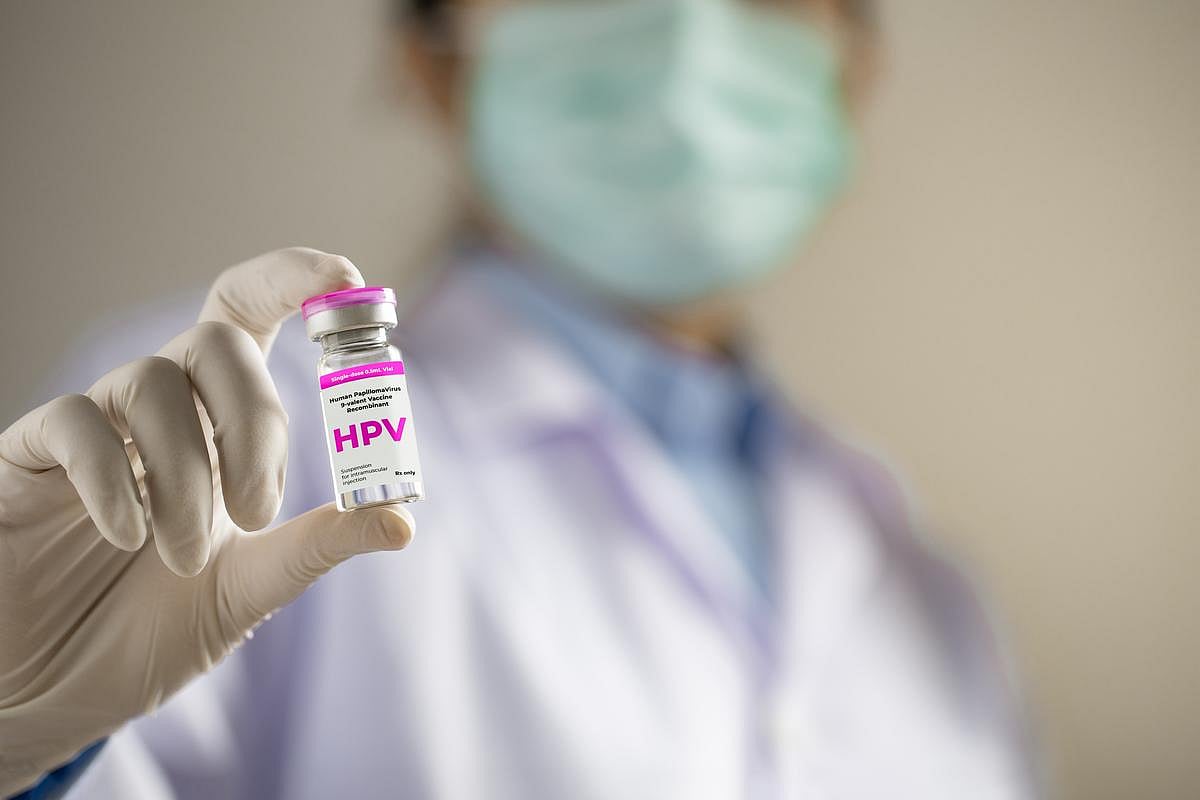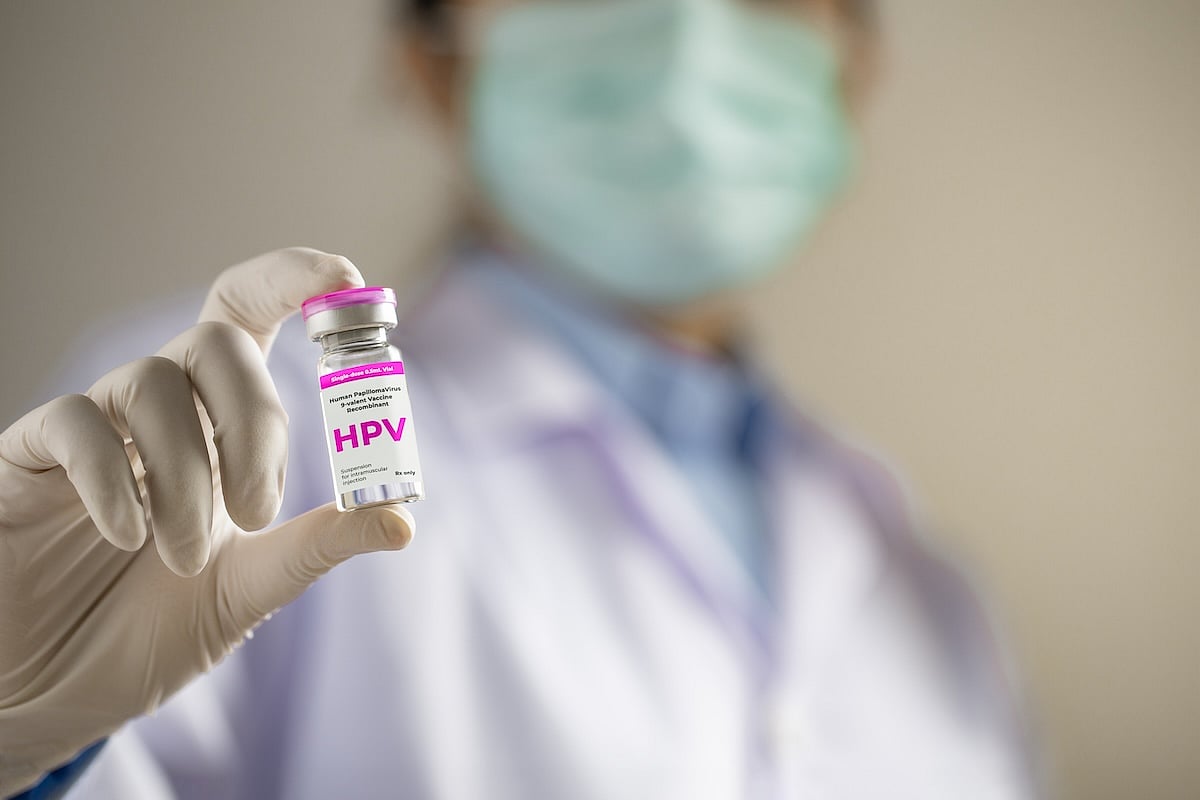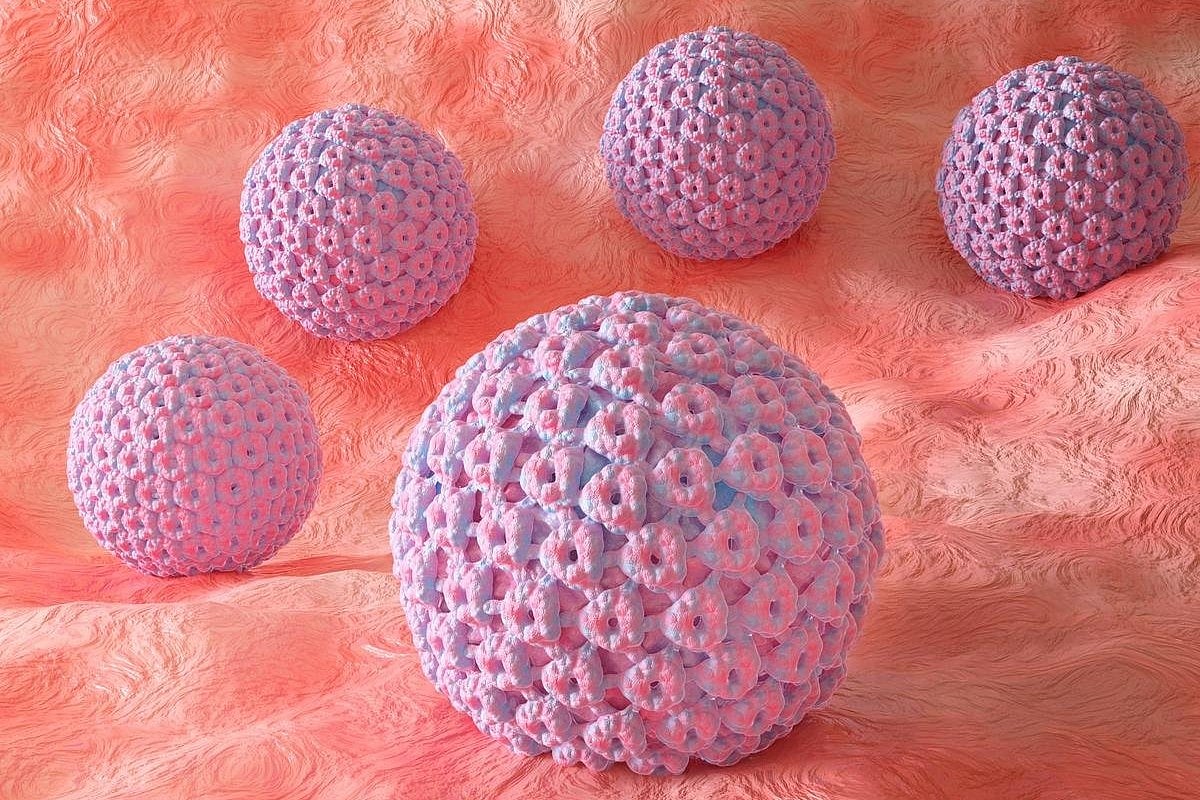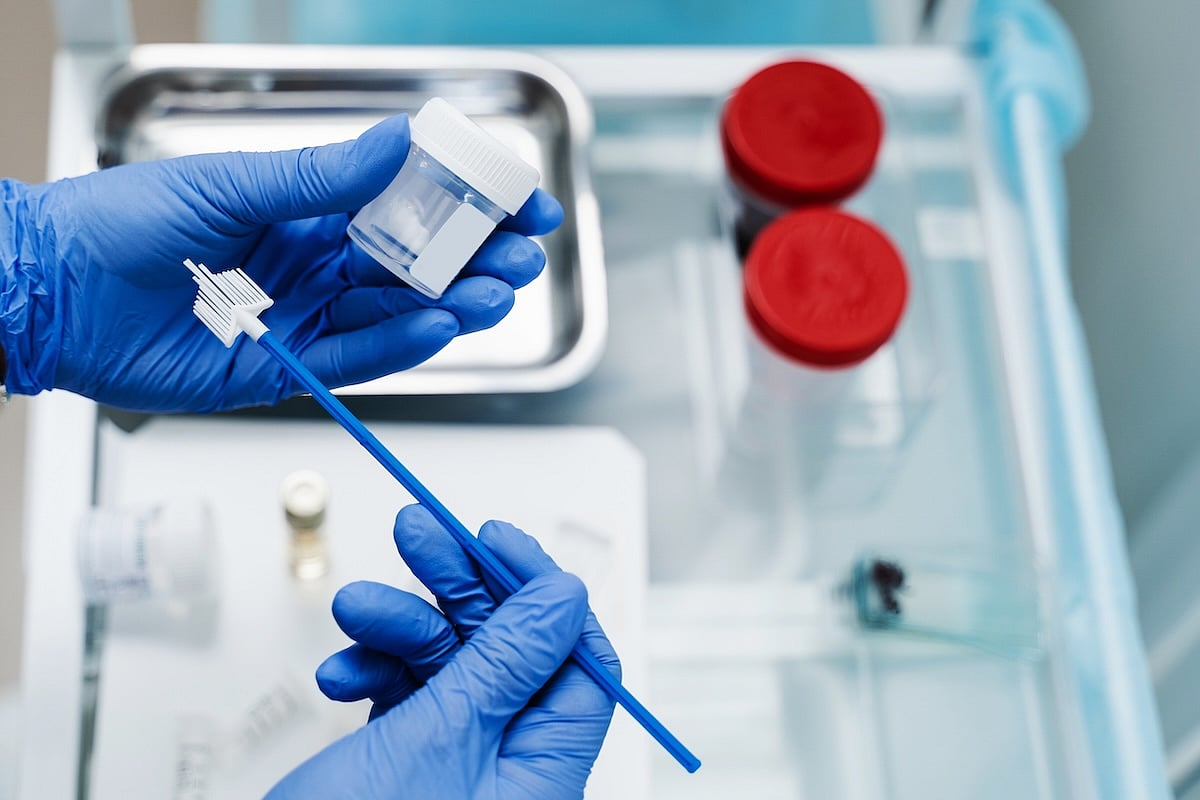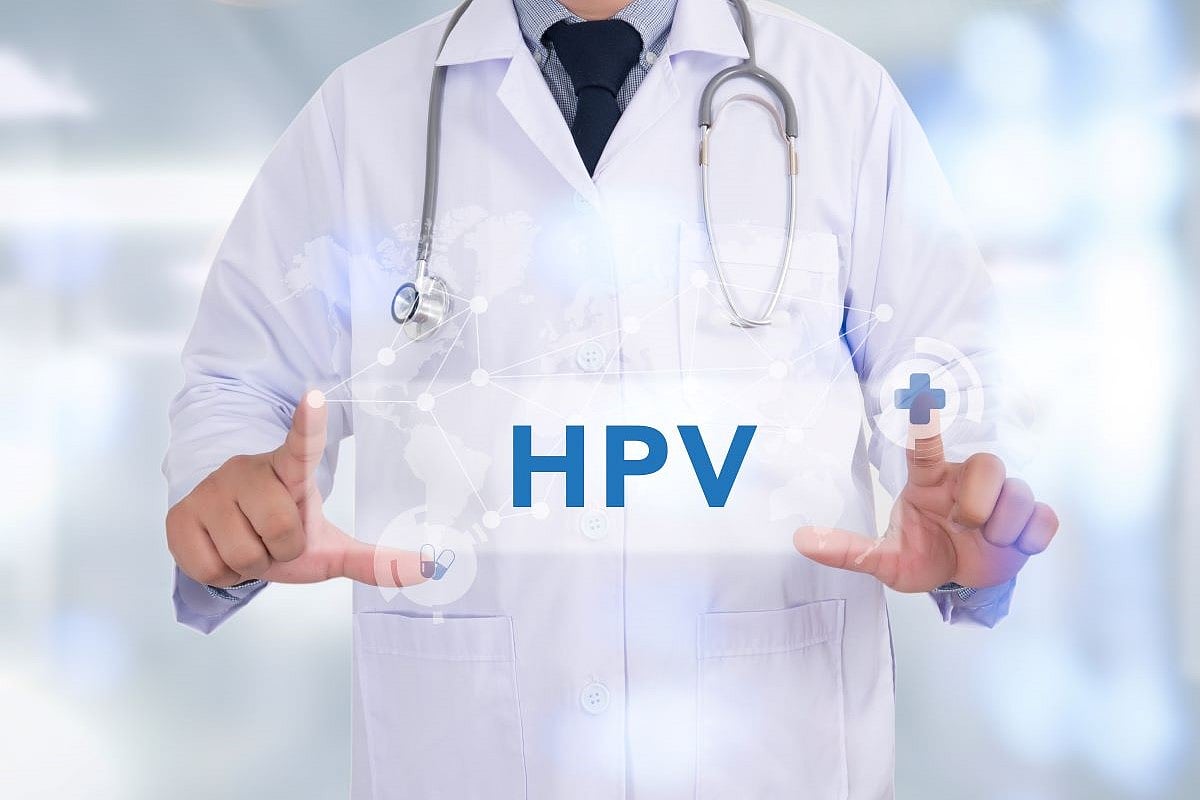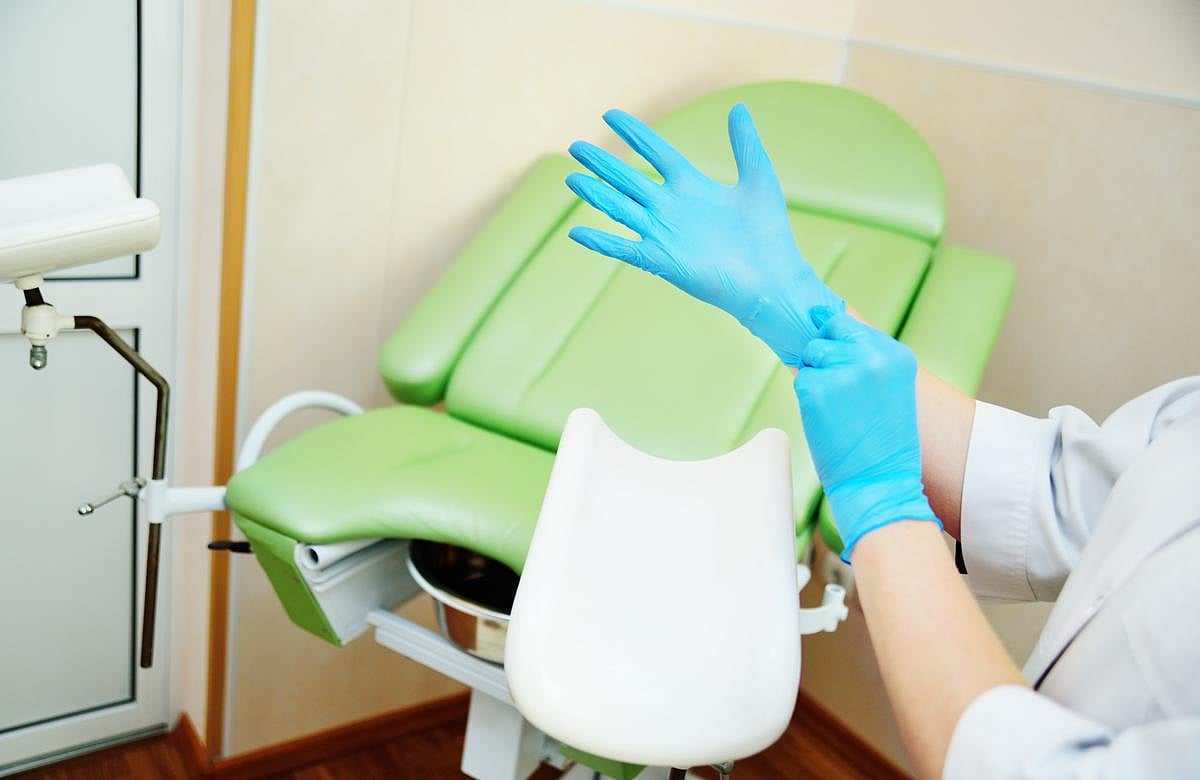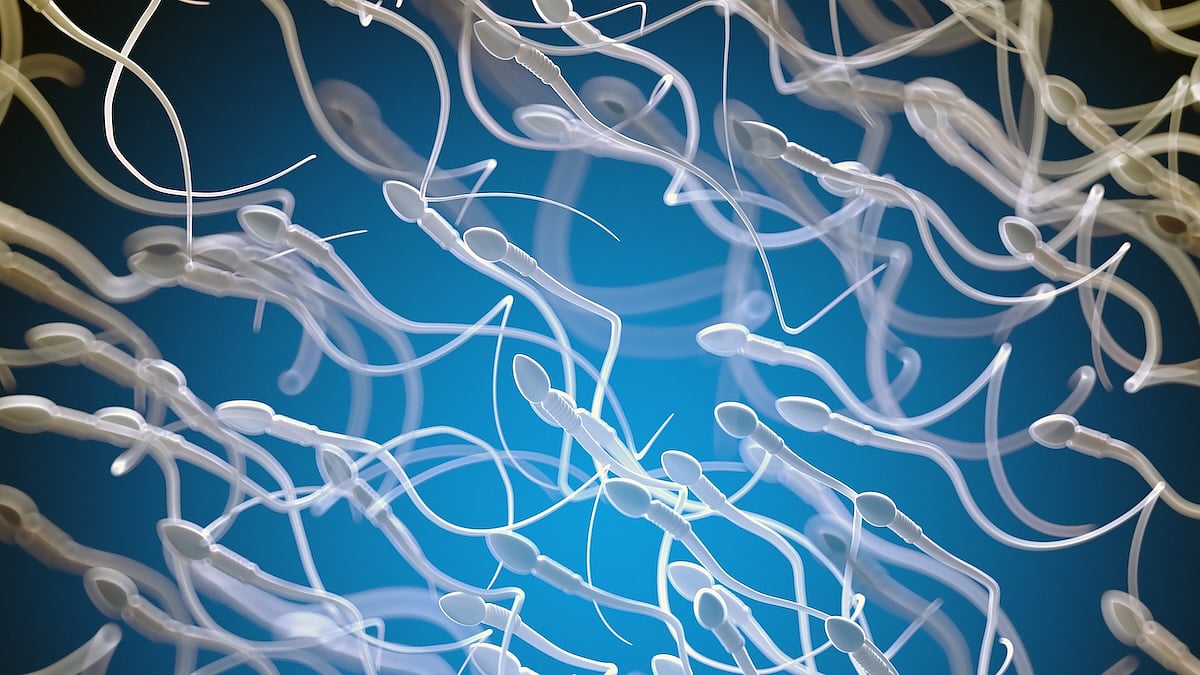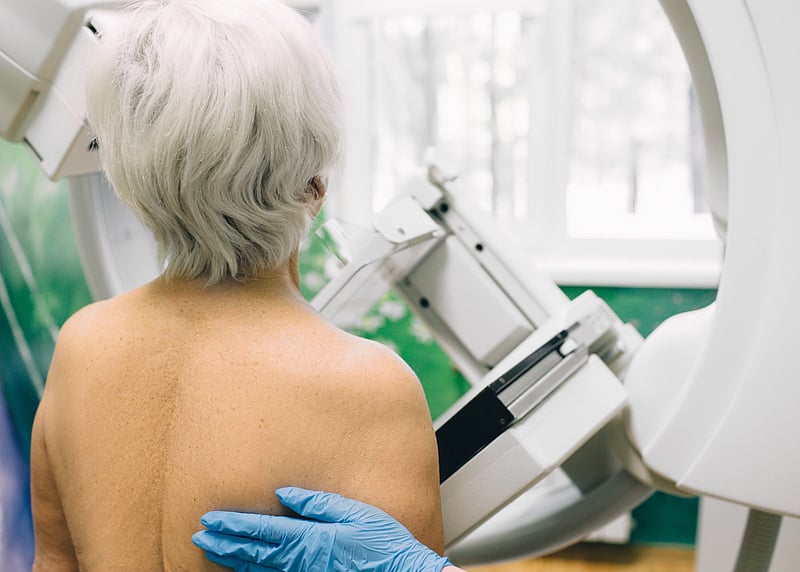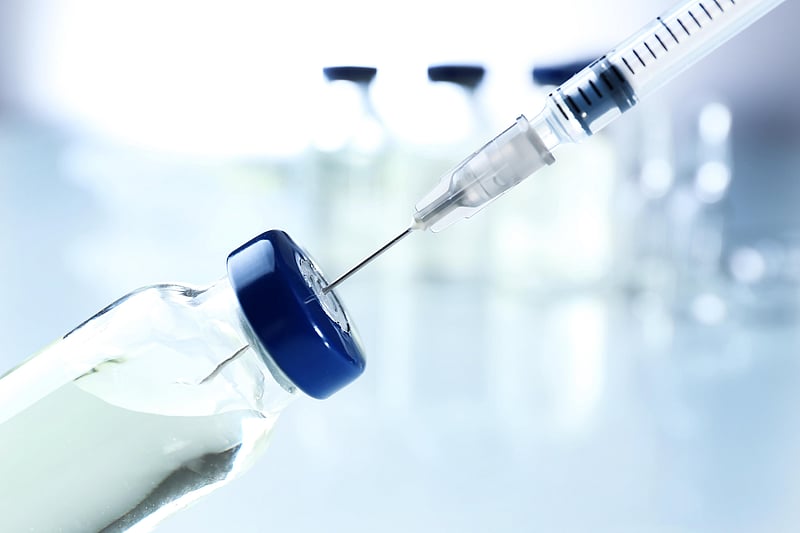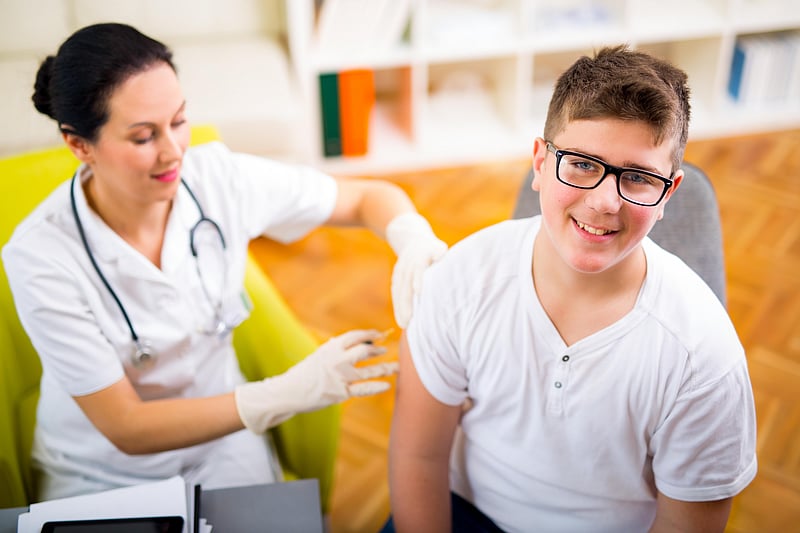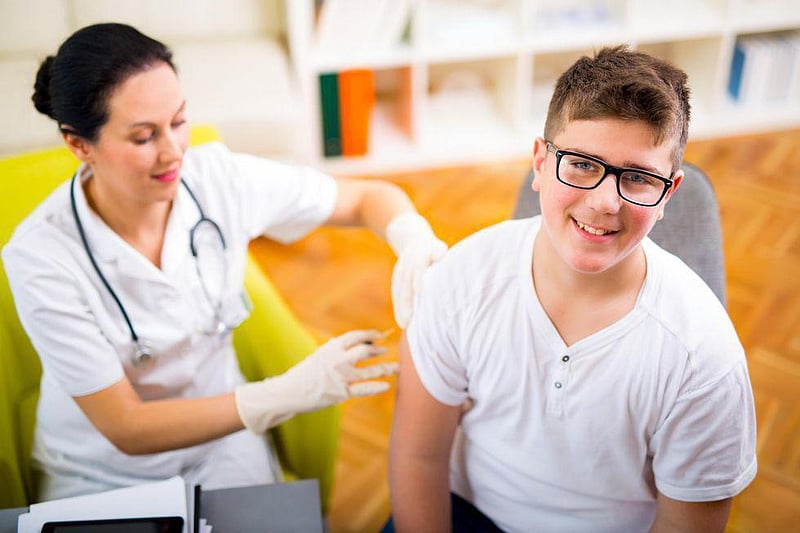Get Healthy!
Results for search "Human Papillomavirus (HPV)".
07 Jan
New Cervical Cancer Screening Guidelines Give Women More Options
A major update expands guidelines on how women should get screened for cervical cancer — and requires most insurers to cover the full process.
15 Aug
HPV Cancer Awareness: Dangerously Low
A new survey finds only 1 in 3 adults in the U.S. have heard of the HPV virus that causes oral and cervical cancer… and even fewer know there's a preventive vaccine.
21 Apr
What Today’s Supreme Court Hearing Means for Your Free Preventative Screenings
An important HealthDay conversation with Michael Sapienza, CEO, Colorectal Cancer Alliance, about Kennedy v. Braidwood, a Supreme Court case challenging the legality of the U.S. Preventive Services Task Force to recommend no-cost screenings to the government.
Health News Results - 45
American women might need only two to three cervical cancer screenings their entire lives if HPV vaccination becomes more widespread, a new study says.
Women vaccinated against HPV between the ages of 12 to 24 likely need a Pap test about every 15 to 25 years, researchers estimate in the
- Dennis Thompson HealthDay Reporter
- |
- February 3, 2026
- |
- Full Page
Routine cervical cancer screening is getting a new option: Self-swab HPV tests, according to updated guidance released Dec. 4 by the American Cancer Society (ACS).
Experts say offering a test that women can collect themselves — sans speculum exam — could make screening less stressful in general.
- I. Edwards HealthDay Reporter
- |
- December 5, 2025
- |
- Full Page
The human papillomavirus (HPV) vaccine is protecting women from the cervical-cancer-causing virus — including those who don’t get the jab, a new study says.
Depending on which vaccine they received, HPV infections fell by 76% to 98% over 17 years among vaccinated women, researche...
- Dennis Thompson HealthDay Reporter
- |
- October 1, 2025
- |
- Full Page
Women who overcome cervical cancer might have another potentially life-threatening health crisis on their horizon, researchers say.
Cervical cancer survivors have nearly double the risk of developing anal cancers compared to the general population, researchers reported Sept. 11 in
- Dennis Thompson HealthDay Reporter
- |
- September 12, 2025
- |
- Full Page
A new blood test can potentially detect head and neck cancers caused by human papilloma virus (HPV) up to 10 years before symptoms appear, a new study says.
The test, called HPV-DeepSeek, detects microscopic fragments of HPV DNA that have broken off from a tumor and entered the bloodstrea...
- Dennis Thompson HealthDay Reporter
- |
- September 12, 2025
- |
- Full Page
Women will flock to an HPV test they can perform at home in private, a new study indicates.
Cervical cancer screening more than doubled when women were offered a mail-in self-collection test for human papillomavirus (HPV), researchers reported June 6 in
Many Americans remain unaware of the cancer risk for both men and women posed by human papillomavirus (HPV), a new Ohio State University poll has found.
Most people don’t know much about HPV and its long-term cancer risks, and also have key misperceptions about how the virus is spre...
- HealthDay Reporter
- Dennis Thompson
- |
- March 4, 2025
- |
- Full Page
A self-administered test can help empower women in identifying risks for cervical cancer.
A new study published Dec. 12 in the journal PLOS Medicine shows the self-test for human papillomavi...
- HealthDay Reporter
- Dennis Thompson
- |
- December 17, 2024
- |
- Full Page
In guidelines that may encourage more women to get screened for cervical cancer, a leading health task force has backed giving women over 30 the option to collect their own vaginal samples for testing.
Instead of needing to have a complete pelvic exam, these women can now go to a doctor’s office and collect their own tissue to be tested for human papillomavirus (HPV), the infection...
- HealthDay Reporter
- Robin Foster
- |
- December 10, 2024
- |
- Full Page
A new study provides good evidence that the human papillomavirus (HPV) vaccine may be achieving its goal of slashing rates of cervical cancer.
“We observed a … 62% drop in cervical cancer deaths over the last decade, likely due to HPV vaccination,” said study senior author Ashish Deshmukh...
- HealthDay Reporter
- Ernie Mundell
- |
- December 2, 2024
- |
- Full Page
Human papillomavirus (HPV) has largely been seen as a health problem of women, given that it causes nearly all cases of cervical cancer.
But men also have reason to both fear HPV and get vaccinated against it, a new study says.
Infection with high-ri...
- HealthDay Reporter
- Dennis Thompson
- |
- August 23, 2024
- |
- Full Page
A new urine test might help doctors more easily screen for cervical cancer, researchers report.
The test looks for proteins generated by a type of cancer-causing human papillomavirus, HPV 16.
HPV strains 16 and 18 are responsible for nearly all...
- HealthDay Reporter
- Dennis Thompson
- |
- July 9, 2024
- |
- Full Page
Development and uptake of the human papilloma virus (HPV) vaccine has been crucial in reducing rates of virus-linked cervical cancers in women.
Now, the accumulated data suggests the vaccine is saving men from fatal cancers, too.
Overall, men who got the vaccine [typically as boys]...
- HealthDay Reporter
- Ernie Mundell
- |
- May 24, 2024
- |
- Full Page
HPV testing to prevent cervical cancer might not have to happen as often as currently recommended, a new study says.
Current standards require women to undergo human papillomavirus (HPV) screening every five years. Nearly all cervical cancers are caused by HPV...
- HealthDay Reporter
- Dennis Thompson
- |
- May 22, 2024
- |
- Full Page
The U.S. Food and Drug Administration has approved a kit that will allow women to collect their own vaginal sample for HPV screening, a move that could increase early detection in those at risk for cervical cancer.
Women will be able to swab themselves in privacy at a doctor's office, clinic...
- HealthDay Reporter
- Dennis Thompson
- |
- May 15, 2024
- |
- Full Page
Getting the HPV shot in adolescence can spare kids a lifetime of risk for cervical and other cancers related to the virus, but only half of American kids are up-to-date on these shots.
Now, a new review suggests that if schools mandate HPV shots as an entry requirement for students, immunization rates rise.
"A majority of studies evaluating HPV vaccine school-entry requirements fou...
- HealthDay Reporter
- Ernie Mundell
- |
- May 1, 2024
- |
- Full Page
Well-to-do American families are more likely than poorer families to increase their children's risk of cervical cancer by skipping the human papillomavirus (HPV) vaccine, a new study has found.
Nearly two-thirds of well-off parents (65%) do not intend to seek out the HPV vaccine for their teens, compared with 40% of disadvantaged parents, researchers report.
"Parents from socioecono...
- HealthDay Reporter
- Dennis Thompson
- |
- February 27, 2024
- |
- Full Page
The best way to prevent cervical cancer in women is to give HPV vaccines to both boys and girls, a new study argues.
That way, herd immunity could help eradicate the cancer-causing virus, researchers say.
Cancer-related HPV strains declined significantly in Finnish towns where boys and girls both received the vaccine, according to findings published Nov. 8 in the journal
- HealthDay Reporter
- Dennis Thompson
- |
- November 9, 2023
- |
- Full Page
While new research suggests cancer screenings are not extending lives for the most part, the study's authors stressed that there are still good reasons why people should continue with screenings.
Their review of clinical trials looked at six kinds of common cancer tests -- mammography, colonoscopy, fecal occult blood testing (FOBT) or endoscopy, prostate-specific antigen (PSA) tests and c...
- HealthDay Reporter
- Cara Murez
- |
- August 28, 2023
- |
- Full Page
For the first time in a decade, the rate at which American adolescents received the human papillomavirus (HPV) vaccine has not increased, new data show.
Current guidelines from the U.S. Centers for Disease Control and Prevention recommend that both girls and boys receive t...
- HealthDay Reporter
- Ernie Mundell
- |
- August 24, 2023
- |
- Full Page
Talking about sexually transmitted infections (STIs) can be uncomfortable. But whether you're talking to your partner, child or doctor, these are important conversations to have.
The U.S. Centers for Disease Control and Prevention estimates 20% of Americans had an STI...
- HealthDay Reporter
- Mandi Harenberg
- |
- May 30, 2023
- |
- Full Page
It was a no-brainer for New York City mom Jen L. when a pediatrician suggested that she vaccinate her two sons against human papillomavirus (HPV).
"Before my kids were eligible for the vaccine, I had read up on it to learn about the vaccine and its positives in general, and also to learn if there were any significant side effects," she said. "I have a good friend who had issues from ...
- HealthDay Reporter
- Denise Mann
- |
- May 23, 2023
- |
- Full Page
The sexually transmitted human papillomavirus (HPV) can cause a range of cancers, but public awareness of this grim fact is slipping in the United States, a new survey finds.
While nearly 78% of respondents knew that HPV could cause cervical cancer in 2014, that dropped to about 70% in 2020, the investigators found.
The common virus can also cause oral, anal, vaginal, vulva and peni...
- HealthDay Reporter
- Cara Murez
- |
- April 17, 2023
- |
- Full Page
A new study shows that many women diagnosed with and dying from cervical cancer are older than 65 -- a group for whom routine screening is usually not recommended.
Cervical cancer screening has been credited with a sharp drop in deaths from the disease in the decades since it was introduced in the United States. But current guidelines state that once a woman reaches 65, if she has been re...
- HealthDay Reporter
- Amy Norton
- |
- January 16, 2023
- |
- Full Page
Cervical cancer is preventable, but people often feel uncomfortable talking about it because of its link to the sexually transmitted human papillomavirus (HPV).
Don't be embarrassed, a cancer expert advises.
Not only does your doctor want to help you, but the virus is incredibly common, affecting most American adults, according to
Just 14% of all cancers diagnosed in the United States are detected through routine screening, a new analysis finds -- pointing to many missed opportunities to catch cancer early.
"It's surprising, but true," said Caroline ...
- HealthDay Reporter
- Amy Norton
- |
- December 30, 2022
- |
- Full Page
Young cancer survivors face a heightened risk from human papillomavirus (HPV), a virus known to raise the risk of cervical cancer. So why are they getting the HPV vaccine in low numbers?
To find out, researchers analyzed data from a clinical trial of the HPV vaccine among cancer survivors who were ages 9 to 26 and were one to five years from the completion of their cancer treatment.
<...- HealthDay Reporter
- Cara Murez
- |
- December 29, 2022
- |
- Full Page
Researchers warn that high rates of cervical cancer screening in women over 65 suggest that some older Americans are being unnecessarily screened.
More health data on these screenings in older women is needed to prevent potential harm and unnecessary costs, said the team from University of Illinois Chicago (UIC), University of California, San Francisco (UCSF) and the U.S. Centers for Dise...
- HealthDay Reporter
- Cara Murez
- |
- November 30, 2022
- |
- Full Page
A woman's body appears to go on high alert after she loses her virginity, a new study reports.
Specifically, her immune system ramps up activity in her vagina following her first sexual intercourse, researchers found.
However, researchers can't yet say whether these immune changes reduce or elevate a female's risk of acquiring a
Back in 2006, doctors began recommending the first vaccine for the common sexually transmitted human papillomavirus (HPV), with the shots carrying the potential to lower the risk of certain cancers.
Now, a new study shows the vaccine has been wi...
- HealthDay Reporter
- Cara Murez
- |
- August 22, 2022
- |
- Full Page
New research points to a conundrum with cervical cancer: While rates of early-stage disease have been dropping in the United States ever since the human papillomavirus (HPV) vaccine was introduced, advanced cases have been on the rise.
Which women are being hit the hardest? The steepest uptick in advanced cer...
- HealthDay Reporter
- Denise Mann
- |
- August 19, 2022
- |
- Full Page
Most sexually active people will contract the human papillomavirus (HPV) during their lifetimes, and about 90% will clear it from their bodies. But some women are susceptible to the cervical lesions that infection brings, raising their risk for cervical cancer.
Now, a new review finds it's possible that during surge...
- HealthDay Reporter
- Cara Murez
- |
- August 5, 2022
- |
- Full Page
Vaccination against the virus that causes most cervical cancers has spurred a widespread reduction of infections among young Americans - including those who are unvaccinated, a new government study finds.
The study, by the U.S. Centers for Disease Control and Prevention, looked at the impact of the nation's HPV...
- HealthDay Reporter
- Amy Norton
- |
- May 17, 2022
- |
- Full Page
A single dose of human papillomavirus (HPV) vaccine provides as much protection against cervical cancer as the standard three-dose regimen, a new study finds.
"These findings are a game-changer that may substantially reduce the incidence of HPV-attributable cervical cancer, and positions single-dose HPV vaccination as a high-value and high-impact public health intervention that is within ...
- HealthDay Reporter
- Robert Preidt
- |
- April 12, 2022
- |
- Full Page
Many American teens and young adults underestimate the risk of sexually transmitted infections from unprotected oral sex, and that's especially true of young men, a new survey shows.
Doctors say oral sex can transmit herpes, gonorrhea, chlamydia, syphilis, HIV and human papillomavirus (HPV), which can lead to cervical cancer, and head and neck cancers.
While there is an
Cervical cancer is the only gynecologic cancer that can be prevented, yet there were more than 4,000 deaths in the United States in 2021 and nearly 14,500 new cases, the American Cancer Society says.
The best way to prevent this is to make sure you and your children get their human papillomavirus vaccines, experts noted.
Nearly all cervical cancer stems from HPV, which will first c...
- HealthDay Reporter
- |
- January 8, 2022
- |
- Full Page
How do you prevent nearly 1 million cases of mouth and throat cancers in American men in this century? Find a way to reach an 80% HPV vaccination rate among adolescents, a new study suggests.
HPV vaccination protects against the human papillomavirus (HPV), which is the leading cause of cancer in the oropharynx. It's...
- HealthDay Reporter
- Robert Preidt
- |
- December 23, 2021
- |
- Full Page
You might have heard a lot about the human papillomavirus (HPV) and its role in cervical cancer, but this sexually transmitted virus can also cause another type of cancer.
Rates of oropharyngeal cancer, which occurs in the middle part of the throat, are rising rapidly among older men throughout the United States. They're also growing among women in the Southeast and Midwest.
Investi...
- HealthDay Reporter
- Cara Murez
- |
- December 21, 2021
- |
- Full Page
The first wave of girls to receive the HPV vaccine are much less likely to contract or die from cervical cancer than women just a few years older, a new study reports.
Nearly all cases of cervical cancer are caused by human papillomavirus (HPV), for which a vaccine has been available since 2006.
Cervical cancer deaths and cases have fallen dramatically among 14- to 24-year-old women...
- HealthDay Reporter
- Dennis Thompson
- |
- November 30, 2021
- |
- Full Page
Women getting vaccinated against the cancer-causing human papillomavirus (HPV) now need two or three shots, but an African clinical trial suggests a single dose is just as effective.
The finding could speed up the immunization process in developing countries with high levels of HPV-related cancers and protect many more women more quickly.
"These findings are a gamechanger that may s...
- HealthDay Reporter
- |
- November 26, 2021
- |
- Full Page
When young people are allowed to give their own consent for human papillomavirus (HPV) vaccines, vaccination rates are higher, new research shows.
The new study suggests that allowing teens to consent without parental involvement could be an important strategy for boosting HPV vaccination rates. This consent is already a policy in several U.S. states.
While researchers can't say def...
- HealthDay Reporter
- Cara Murez
- |
- November 17, 2021
- |
- Full Page
The sooner girls are vaccinated against human papillomavirus (HPV), the lower their future risk of cervical cancer, a new study finds.
Compared to unvaccinated women, the risk of cervical cancer was 87% lower among those who received the bivalent vaccine Cervarix at ages 12 or 13. By contrast, it was 62% lower in those who got the vaccine at ages 14-16 and 34% lower those vaccinated at ag...
- HealthDay Reporter
- Robert Preidt
- |
- November 4, 2021
- |
- Full Page
Just over a decade ago, the passage of the Affordable Care Act (ACA, or Obamacare) made many common cancer screenings free. But a pair of new studies caution that when those free tests turn up signs of trouble, important follow-up tests may be too pricey for some patients.
The bigger concern: Some patients may forgo these expensive tests, even when they may prove lifesaving.
"With t...
- HealthDay Reporter
- Alan Mozes
- |
- October 12, 2021
- |
- Full Page
Pregnant women infected with certain strains of human papillomavirus (HPV) may have a heightened risk of preterm birth, a new study suggests.
HPV is a sexually transmitted disease that can cause genital warts. Most of the time, the immune system clears the infection. But some strains of HPV become persistent in a minority of people -- and, over time, may lead to certain cancers.
In ...
- HealthDay Reporter
- Amy Norton
- |
- September 20, 2021
- |
- Full Page


